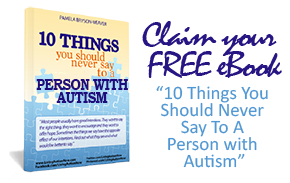Autism numbers are rising. As several disorders on the spectrum are grouped collectively to fall under a single diagnosis of Autism Spectrum Disorder, the number of children and adults alike are also rising. Nonetheless, it remains a complex neurological disorder with equally complex diagnosis, causes, and therapies or treatments. The feeling of being a parent to one with ASD, however, remains the same. Overwhelmed, frightened, confused? These feelings are nothing new. It is normal to have apprehensions and more questions than answers.
Your child, however, needs you now more than ever—and the best way to help him or her is to widen your knowledge about autism and its eventual effect on your child.
So, what to do to become your own child’s autism advocate? Here are some ways how:
Enroll in Parenting Classes
Look up your local yellow pages for a nearby autism institute and research center. These institutions always provide parent- education classes, seminars, and symposium catered specifically for parents whose son or daughter is diagnosed with ASD. Some classes regularly meet on a weekly or twice-a-week basis for several weeks or months to teach you how to set realistic and doable short- and long-term goals. It has a set of curriculum to follow that allows parents to learn practical skills, techniques and strategies on how to go-about your child’s disorder and improve his/her skills. Some research centers also tackle collaborative initiatives with educators and professionals in a way of developing tactics for school and home.
Attend Community Outreach Programs
Another low-cost option in learning about autism and is by joining community-based training. Most programs initiated in communities are sponsored by experts in the field of autism. These programs usually follow the same core curriculum as that of institute-based classes. In some, groups engaging in open discussion and usually facilitated by parents to autism children provide lectures on ASD tapping awareness, life skills, social skills, and other specific aspects of autism. This parents’ forum are often considered the very tie that binds autism communities across regions providing valuable knowledge and support to families with members on the spectrum.
Online Tool Kits
The internet continually proves to be an indispensable part of raising autism awareness and in providing support to families dealing with ASD across nations. Free online tool kits are available for families in various websites. These kits usually provide important and relevant information on the disorder, treatment options, coping strategies and techniques, and goal-setting. Some websites, like Living Autism Now (www.livingautismnow.com), provides a portal that connects families to the best professional help and services in their localities. It also provides ample information and links to resources as well as a space dedicated to answering questions and for sharing experiences with others.
School-Based Programs
Primarily targeted to parents with school-age children, this program type usually deals on how parents and teachers can best met the educational needs of children with autism. The program usually consists of lectures, forums, seminars, open-discussion groups, and one-on-one engagement initiatives. Each school has its set of curriculum to follow, and to best gauge which will work best with your child is to check with its special education teacher or its guidance counselor.
Faith-Based Programs
Some religious communities have also set-up its own outreach program to aid in the growing need for autism awareness and acceptance. If you belong to a certain religious congregation, try checking with the local parish priest, catechists or lay ministers for any open discussion groups or counseling care. These programs often tap on providing families with emotional and spiritual support.
There are many resources available nowadays for you to choose from. As parents, we only want what is best for our children. Each autism case is unique. Finding one that will best suit your child and your expectations solely depend on your choices.





